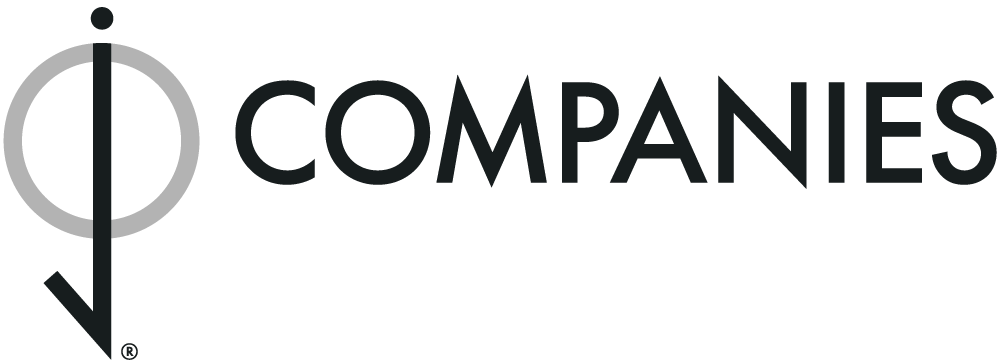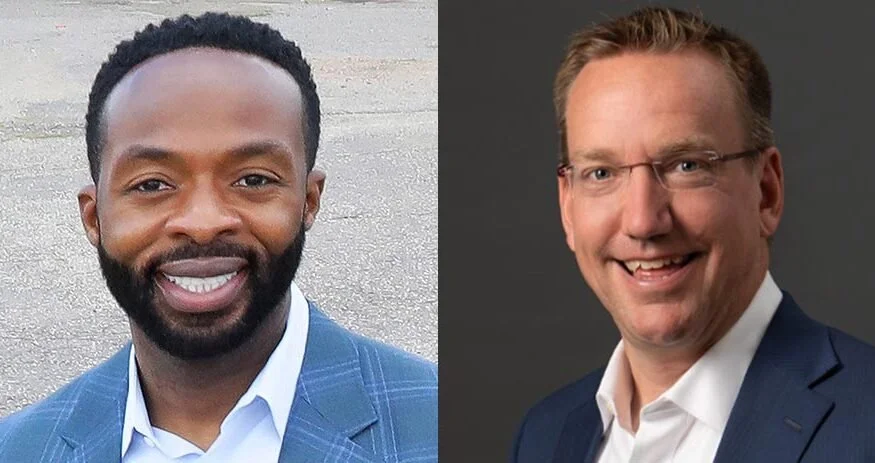Q&A: Opara, Bernards work to advance affordable housing, equity
[Originally published by Finance & Commerce, written by Brian Johnson: View Source]
Johnny Opara (left) and Don Bernards
Emerging developer Johnny Opara of St. Paul-based JO Companies crossed the finish line on his first large-scale development — an $18.4 million, 62-unit workforce housing project called The Hollows – with help from financing partners that include Don Bernards, a partner in Baker Tilly’s real estate group.
Together, they’re working on projects that create housing for working-class families, while bringing more diversity to the local development community.
“This business is extremely complicated and extremely hard, especially for someone that’s coming into this new,” said Opara, who is currently working with Sherman Associates on The Heights, a mixed-use redevelopment of the former Hilcrest Golf Course in St. Paul.
Inspired by his late father, who had lived in housing that – in Opara’s words – “could have been better,” Opara founded JO Companies in 2018. In addition to The Hollows, his project portfolio includes Wangstad Commons, a $23 million, 54-unit affordable and supportive housing development in Brooklyn Center.
Bernards has been “active in many aspects of affordable housing since 1999,” according to his company bio. He helped create and launch Baker Tilly’s DevelUP program, which helps underrepresented developers “conquer the real estate industry, scale their business and build diverse teams.”
In the following interview, Opara and Bernards talk about the challenges of developing affordable housing, past and present projects, equity initiatives in the commercial real estate industry and more. The interview has been edited for length and clarity.
Q: Johnny, talk about how you got started in the development business.
Opara: I kind of fell into the development. My father, at the time, was living in affordable housing. My father had suffered a major medical event in the early ’90s that impacted his life, which resulted in him only having access to housing that reflected his economics at the time. I took it upon myself to learn everything I could about affordable housing, to figure out, ‘What is the role of owner and operator? What can I do as a son to impact his life?’
There’s a level of quality, not only in terms of where he lives, but a quality of mind, [of being able to say], ‘I’m proud of where I live.’ Unfortunately, my father passed away in 2018, in September, and that was the motivation that allowed me to continue to stay on this path.
We’re a St. Paul based developer. We’re excited about being in this business. We’re excited about impacting people’s lives. We really want to make sure that folks understand that housing plays not only a role in in terms of how you live and where you live, but also it plays a role in terms of your mental health.
Q: Don, what was your role in The Hollows?
Bernards: I’m sure you are aware of these types of projects. They’re way more complicated than they should be. It’s not just going to a greenfield, getting a couple of zoning approvals and [building new]. As Johnny said, we’re in the lower teens of number of sources of financing they put together [for The Hollows].
This is his first deal. And he did a phenomenal job. Some of these projects, there’s so many roles between the city, the state, the local housing, tax credit regulations, requirements of lenders. We really worked with Johnny to look at the capital stack. How does it flow together? How does it work together?
Q: How are you creating opportunities for BIPOC developers to break into the business?
Bernards: At a national level, one of my colleagues, Matt Paschall, is helping us lead what we call DevelUP, helping bring equity to commercial real estate development. It’s really lack of access to education about these complex processes, as Johnny said, lack of all the relationships — architect, lender, contractor, state agencies, on and on. And then lack of access to capital. If you’re doing your first or second deal, how you can get a U.S. Bank or Wells Fargo, anybody, to take a look at you?
So, we put together a number of items, kind of a platform around we call underrepresented developers, people at the table for the first time in commercial real estate development. We’ve hosted a couple of annual conferences. Our next one’s coming up in Chicago in April.
We also have Shark Tank-like events, we call them Think Tanks, where you bring your projects to us. We’ll kind of vet them, give you ideas [about] construction, finance, and whatnot.
Locally here in the Twin Cities, we were part of a team hired by Ramsey County. Ramsey County put together a program for what they’re calling emerging and diverse developers. And it was a three- or four-month process for us along with NEOO Partners and Urban Land Institute of Minnesota. We did capacity building education to get people thinking about their projects. They can get up to from $100,000 to $500,000 from Ramsey County and a 0% loan.
Opara: JO Companies was selected for the inaugural class for the LISC Developers of Color cohort. I serve on a couple of boards. I think there’s an opportunity for me to just speak truth in terms of some of the things that I had learned the hard way, which is balance sheet requirements.
We only represent less than 3% if not 2% in CRE. There’s an opportunity for me to speak truth in terms of some of the things that you don’t hear about. You’re getting excited and all of a sudden, they ask you, ‘So what do your financials look like?’ If those financials don’t check these boxes, that can be the end of that conversation, or the start of another conversation surrounding, ‘We may have to have a guarantor.’
A lot of folks within this space that look like me may not have access to this information. And the sooner that you’re able to get access to this information … you save time.
Time kills deals, period. End of story. And if there’s a way you can shave off some time by working with practitioners that have experience, who have seen both successes and failures, that can help you along the way as you charge toward uncharted territory, and this is your first or second deal, that is going to save a lot of time and brain damage, just from my own experience.

